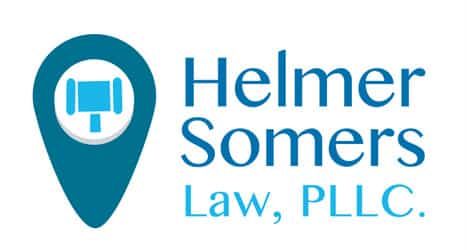
Estate planning is important for everyone, no matter their age or wealth. Estate planning avoids taxes and legal tie-ups and ensures funds are bequeathed as you wish. An estate plan appoints the right people to take care of your kids and even you if you’re incapacitated. If you do not have a plan the inheritance you leave could be eaten away by taxes or given to the wrong person. Financial planners say you are wrong if you think only the super-wealthy need to worry about estate planning. Here are a few planning tips to keep your money in the family to protect your loved ones.
What a Will Can Do
It is obvious the first step to do is draw up a Will. A Will is a document that lets you relay who gets what when you pass away. You can get as specific as you want (i.e., you leave a certain family heirloom to a particular person) or keep it more general (i.e. you want your surviving spouse to get everything). On the other hand without a will, your estate must be divided in probate court, a process that costs a good deal of money for your loved ones to pay. Once a will is drawn up, revisit it on a regular basis, family relationships change, grandchildren are born and laws do change.
The Importance of Beneficiary Designations in Estate Planning
When a person signs a will (or a will coupled with a revocable trust) in order to set forth a plan for the distribution of his or her estate following death, he or she often believes the estate plan is complete. But if the person has failed to carefully consider the beneficiary designations on life insurance policies, retirement accounts, and other assets, and coordinate those designations with the estate plan, the result following death may be quite different from what was intended. Your named beneficiaries will supersede whatever you have in your will. For that reason, it is a good idea to review beneficiary information with every major life change such as the birth of children, marriage, or divorce.
What is the Reason For a Trust?
A trust is traditionally used for minimizing estate taxes and can offer other benefits as part of a well-crafted estate plan. A trust is a fiduciary arrangement that allows a third party, or trustee, to hold assets on behalf of a beneficiary or beneficiaries. Trusts are established to provide legal protection for the trustor’s assets, to make sure those assets are distributed according to the wishes of the trustor, and to save time, reduce paperwork and, in some cases, avoid or reduce inheritance or estate taxes. Trust can be set up in several ways but irrevocable, or permanent, a trust may offer the most tax benefits. When money is put into an irrevocable trust, the assets no longer belong to you. They belong to the Trust. Money can be distributed from a trust even while you are alive. Money in a Trust is not subject to probate. Trusts are complex so it is wise to consult with an estate attorney to determine how to create one that meets your goals.
Converting Traditional Accounts to Roth Accounts
There are plenty of reasons to consider a Roth IRA rollover, which transfers funds from an existing traditional IRA (or another retirement account) into a Roth IRA.
- A Roth IRA rollover (or conversion) shifts money from a traditional IRA or 401(k) into a Roth.
- You can get around Roth IRA income limits by doing a rollover.
- You’ll owe tax on any amount you convert, and it could be substantial.
If you want to convert assets from your 401K or another employer-sponsored plan to a Roth IRA, make sure the money is transferred directly to the financial institution. If your company issues the check to you, it must withhold 20% of the account balance for tax purposes. You can avoid leaving your beneficiaries with that tax bill by gradually converting traditional accounts to Roth accounts that have tax-free distributions. Since the amount converted will be taxable on your income taxes, the goal is to limit each year’s conversion so it doesn’t put you into a higher tax bracket.
Give Now or Llater?
Giving now rather than later is the preferred approach for many financially comfortable people these days. According to a 2019 Merrill study, Leaving a Legacy: A Lasting Gift to Loved Ones, 65% of Americans 55 and older say it’s better to pass on at least part of their estate while they are still alive. One of the best ways to ensure your money stays in the family is to simply give it to your heirs now. The IRS allows up to $15,000 per person per year in gifts. The gifts can bring your estate tax down and the money to the recipients is tax-free.
You Can Incorporate Charitable Giving Into Your Estate Plan
A very simple and direct way to benefit charity at your death is to leave a bequest in your will or revocable trust. A bequest is a sentence in either your will or trust stating the amount you’d like to leave to the charity, identifying the specific charity to receive the amount, and stating the purpose for which you’d like the charity to use the funds. It is very important to ensure that you use the correct legal name of the charity because some charities have similar names. You can even set up a charitable trust to make regular payments to the charity for some amount of time but eventually “give back” whatever is left to you or, if you’ve died, to someone else in your family. Alternatively, you can set up a charitable trust to work the other way — pay you while you’re still alive, and upon your death, the remaining amount in the trust goes to the charity.
Estate planning can feel intimidating with it’s complex strategies and the ever-changing tax code but it is essential. Ignoring it can be a costly mistake for your loved ones.
Contact Us (859-371-0730) for a Consultation Today
—

About Helmer Somers Law
We are committed to helping families resolve their differences and get back to their lives. We help individuals and families fight for custody of children. We protect your rights as you go through divorce proceedings. We offer the guidance and support that you will need when you are involved with the legal system. We help clients with cases involving…
- Divorce and legal separation
- Child custody and visitation
- Child support and spousal support (alimony)
- Property division
- Paternity
- Domestic violence
- Adoption
- Grandparent rights
- And other related issues
>> Learn More
